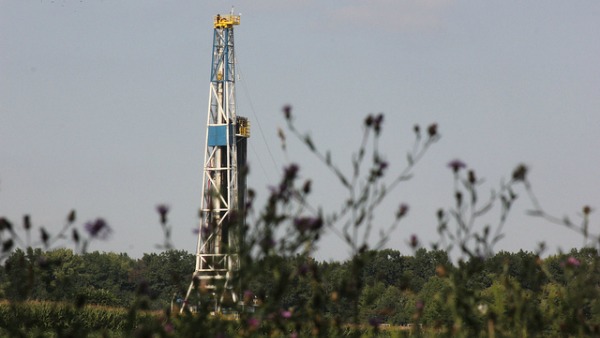
WCN 24/7The claim that natural gas is saving the climate is revealed as hot air.
Perhaps you’ve heard the claim that the natural-gas boom made possible by fracking is reducing America’s greenhouse gas emissions.
The logic underpinning this claim is that natural gas is a cleaner-burning fuel than coal, and hydraulic fracturing has produced a surfeit of cheap natural gas. Ergo, fracking is helping power plants switch from coal to natural gas, helping the climate along the way.
But that’s only half the story.
A Stanford-led study, which was produced with input from 50 academic, government, and private-sector experts, concludes that natural gas is having only “modest impacts” on carbon dioxide emissions.
Yes, natural gas is helping to dig a grave for coal. It’s the lesser of two fossil-fuel evils. But natural gas’s low price is also slowing down the country’s shift toward climate-friendly solar and wind power. From the Stanford report [PDF]:
Shale development has relatively modest impacts on carbon dioxide, nitrogen oxide and sulfur dioxide emissions, particularly after 2020. Since 2006, electricity generation has become less carbon intensive as its natural gas share increased from 16 to 24 percent and its coal share decreased from 52 to 41 percent. Over future years, this trend towards reducing emissions becomes less pronounced as natural gas begins to displace nuclear and renewable energy that would have been used otherwise in new powerplants under reference case conditions.
Meanwhile, the study concludes that fracking is helping to slightly expand America’s economy — but not nearly to the extent that the industry would like us to think:
Shale development also boosts the economy by $70 billion annually over the next several decades. Although this amount appears large, it represents a relatively modest 0.46 percent of the US economy. Today total natural gas expenditures represent about one percent of GDP within this country.
Joe Romm of ClimateProgress points out that the International Energy Agency recently warned that the low price of natural gas is also hampering efforts to improve energy efficiency, which is bad news for greenhouse gas emissions.
“From a climate perspective, then, the shale gas revolution is essentially irrelevant,” argues Romm, “and arguably a massive diversion of resources and money that could have gone into deploying carbon-free sources.”




